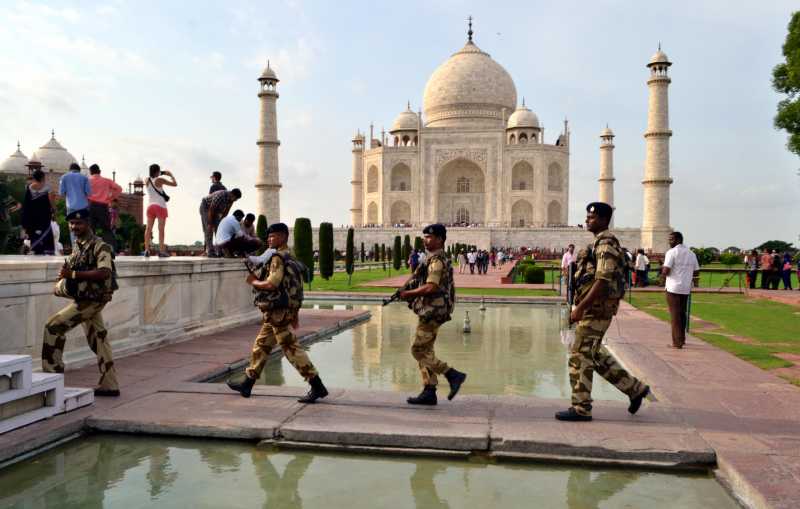Brij Khandelwal says growing human load seen as threat to the Taj

More than 200,000 people visited the Taj Mahal in two days over the weekend, causing alarm among conservationists who feel the ever-increasing human load on the fragile white marble wonder on the banks of the Yamuna could prove detrimental to the health of the monument to love.
Mughal emperor Shah Jahan wanted it to be a place of peace and tranquillity, but the 17th century Taj Mahal today sees a daily influx of nearly 12,000 visitors. By the end of the holiday bounty that began Thursday and will end Monday evening, tourism industry souces say, close to 300,000 people would have visited the monument. This includes hordes of those under 15 who enjoy free entry.
Conservationists in the city demand that the Archaeological Survey of India (ASI) must come up with a plan to regulate the tourist inflow.
More than six million tourists visited the Taj last year. And the numbers are expected to shoot up as a new tourist season begins Sept 27, World Tourism Day.
With so many people crowding around the monument, it is natural that the overall load will increase. Then, there is an additional problem of people touching and feeling the marble structure.
Historians like R. Nath have repeatedly expressed concern after reports that no one has been inside the basement to see the state of the foundation for the last so many years. With the Yamuna receding several hundred feet away and with hardly any water left in the river, we could be inviting trouble for the monument, local activists feel.
Back in 1993, a high-powered committee appointed by the Supreme Court had recommended restrictions on the entry of visitors. For the first time in history, the Taj Mahal got a weekly holiday and visiting hours were limited, including a ban on nocturnal visits.
The Taj needs to breathe and spend a quiet day, the experts had opined. But, owing to popular demand, night viewing of the Taj is now allowed for four days a month.
From a few hundred at the time of India’s independence in 1947, the daily influx of visitors from all corners has now crossed 10,000. On some days it goes beyond 50,000.
Historians and conservationists feel the structure is being endangered by the “surfeit of love” and interest showered by its admirers.
Who will decide what is the safe limit? The ASI says that the Nagpur-based National Environmental Engineering Research Institute (NEERI) had been entrusted with the task two years ago and a detailed report is about to be submitted.
These are questions begging answers. Thus, while the tourism industry – both government and private – wants more and more tourists to visit the Taj, conservationists see alarming signals.
Surendra Sharma of the Braj Mandal Heritage Conservation Society wants a graded system of entry tickets with those paying the highest amount being allowed to enter the main structure of the mausoleum.
“Those who pay less should not be allowed beyond the central tank. And for the masses, let there be free entry till the main gate or the forecourt, from where they can have a distant glimpse of the Taj Mahal,” Sharma told IANS.
Historian Amit Mukherjea and others also feel some system has to be evolved to regulate the flow, “may be a waiting list on the first-come-first-served basis could be the answer”.
This would indirectly help the Agra hotels because tourists would then have to stay longer in Agra, waiting for their turn to see the Taj.
So while the monument’s battle with industrial pollution may be over thanks to a series of drastic measures by the Supreme Court, the human load is becoming a threat to the Taj complex along with the onslaught of nature in the form of dust from neighbouring Rajasthan desert and the dry Yamuna riverbed.